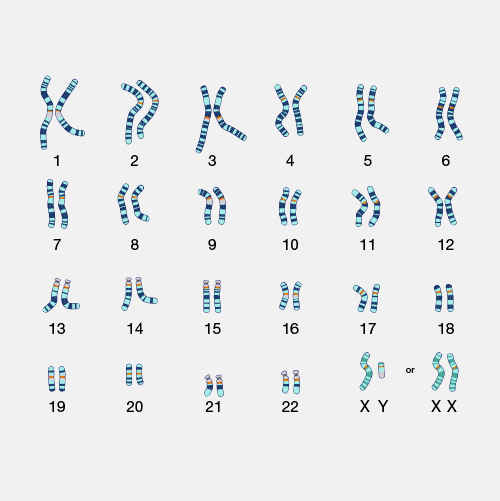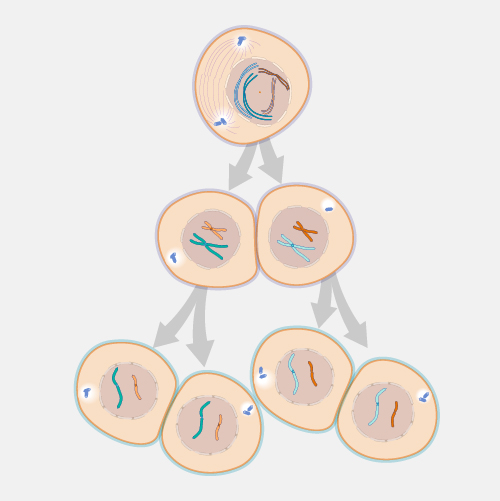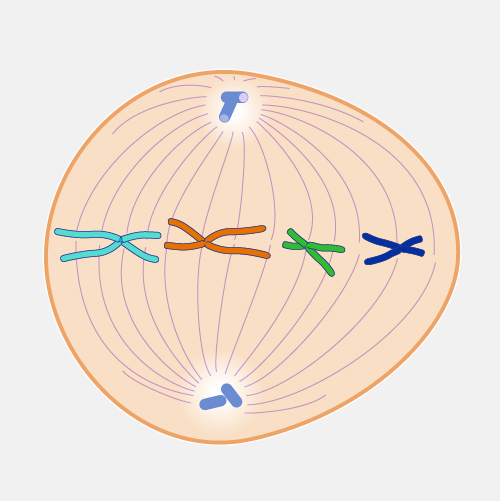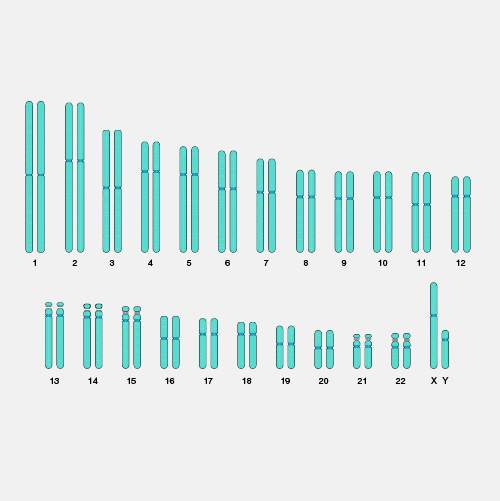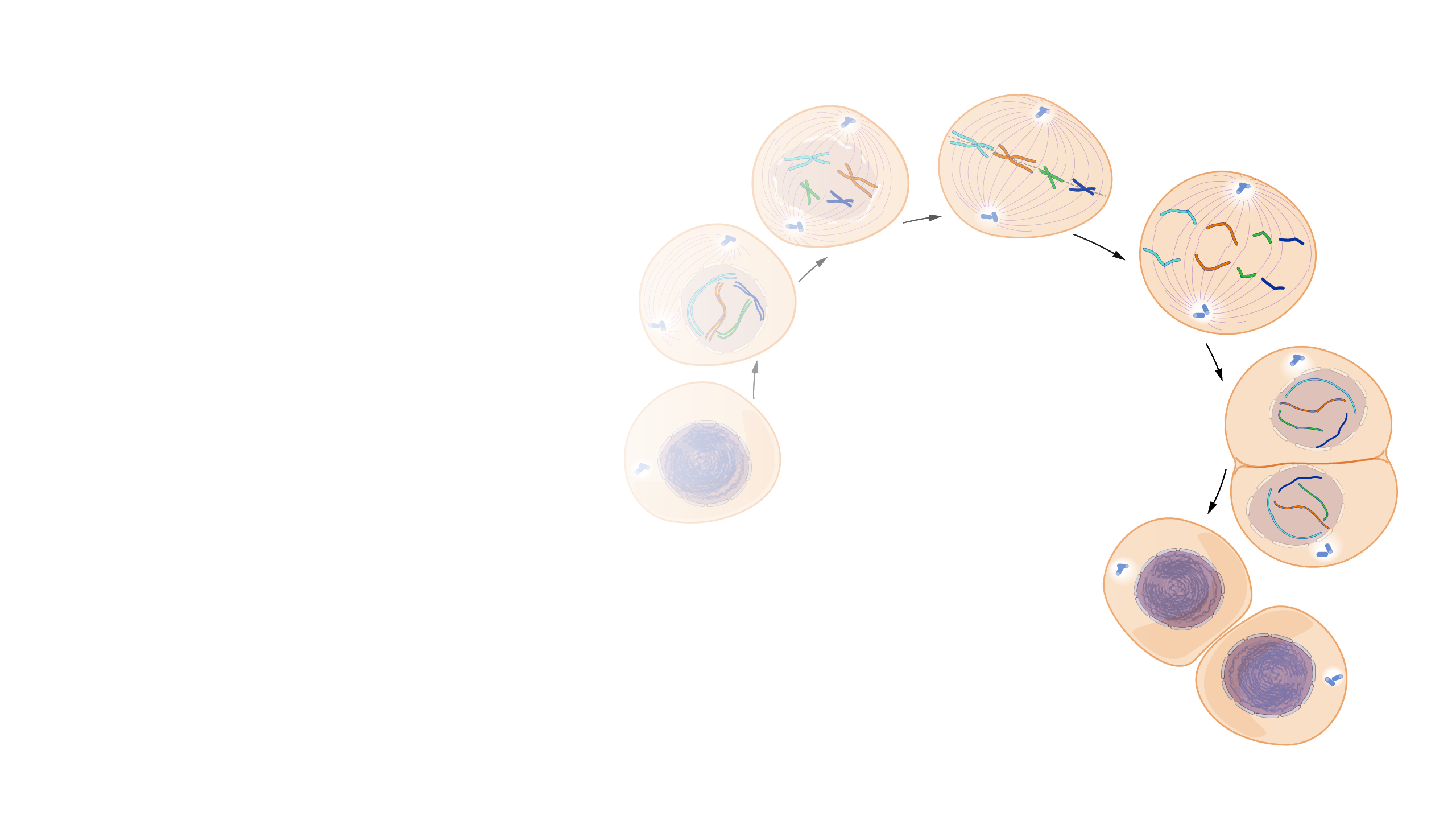
Mitosis
Definition
Mitosis is the process by which a cell replicates its chromosomes and then segregates them, producing two identical nuclei in preparation for cell division. Mitosis is generally followed by equal division of the cell’s content into two daughter cells that have identical genomes.
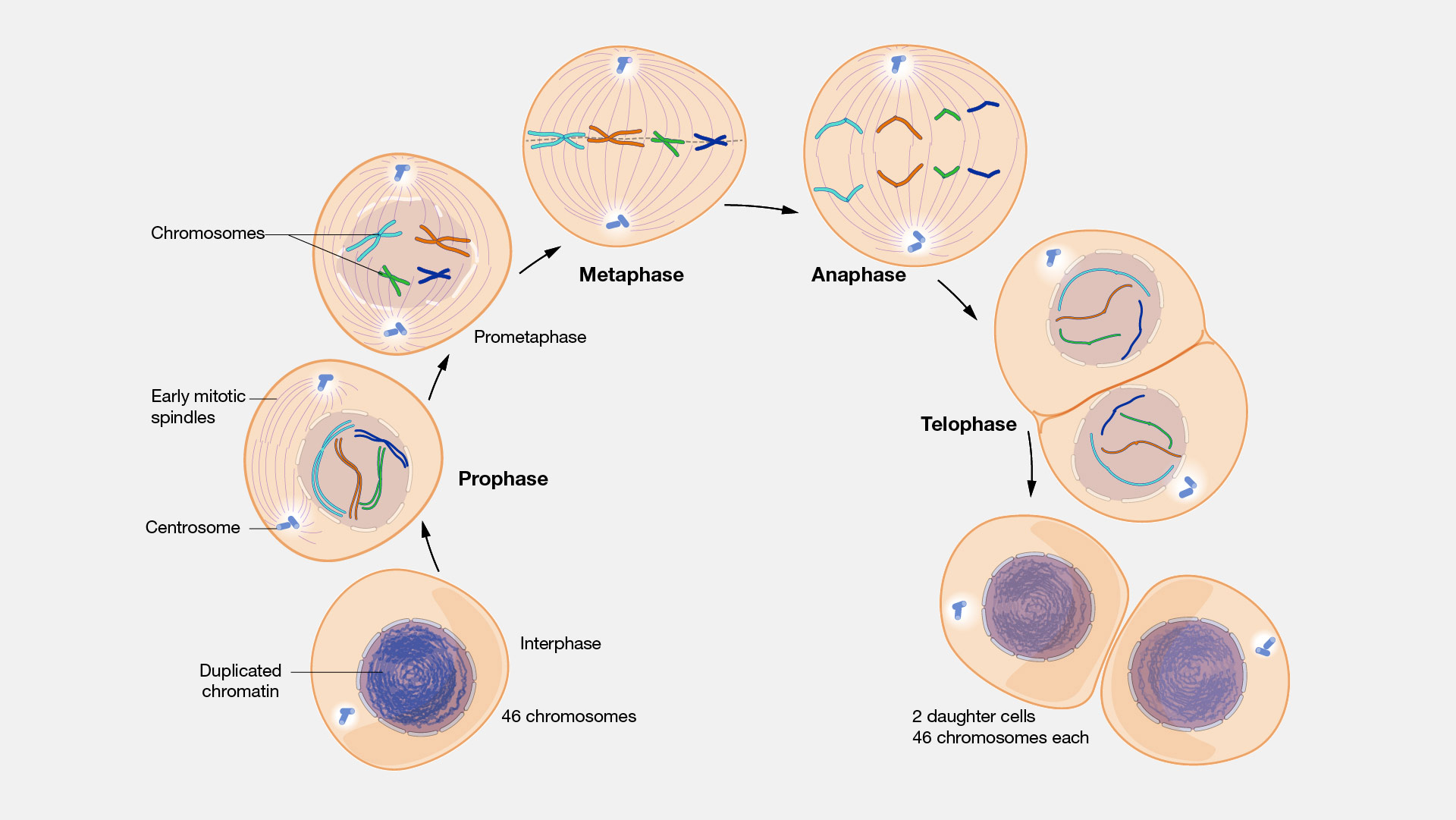
Narration
Mitosis. We can think about mitosis like making a copy of an instruction manual. Copy each page, then give one copy to each of two people. In mitosis, a cell copies each chromosome, then gives one copy to each of two daughter cells. With our instruction manual example, it is really important that each person gets one copy of every page. We don't want to accidentally give one person two copies of page four and one person zero copies of page four. And the copies need to be perfect. No misspellings, no deletions. Otherwise, we might not be able to follow the instructions and things could go wrong. This is also true with mitosis. We need each of our cells to receive exactly one copy of each chromosome, and each copy needs to be perfect, no mistakes, or the cells may have trouble following the genetic instructions. Fortunately, our cells have amazing systems to copy chromosomes almost perfectly and to make sure that one copy goes to each daughter cell. Still, very rarely mistakes in copying or dividing chromosomes are made, and these mistakes can have negative consequences for cells and for people.


